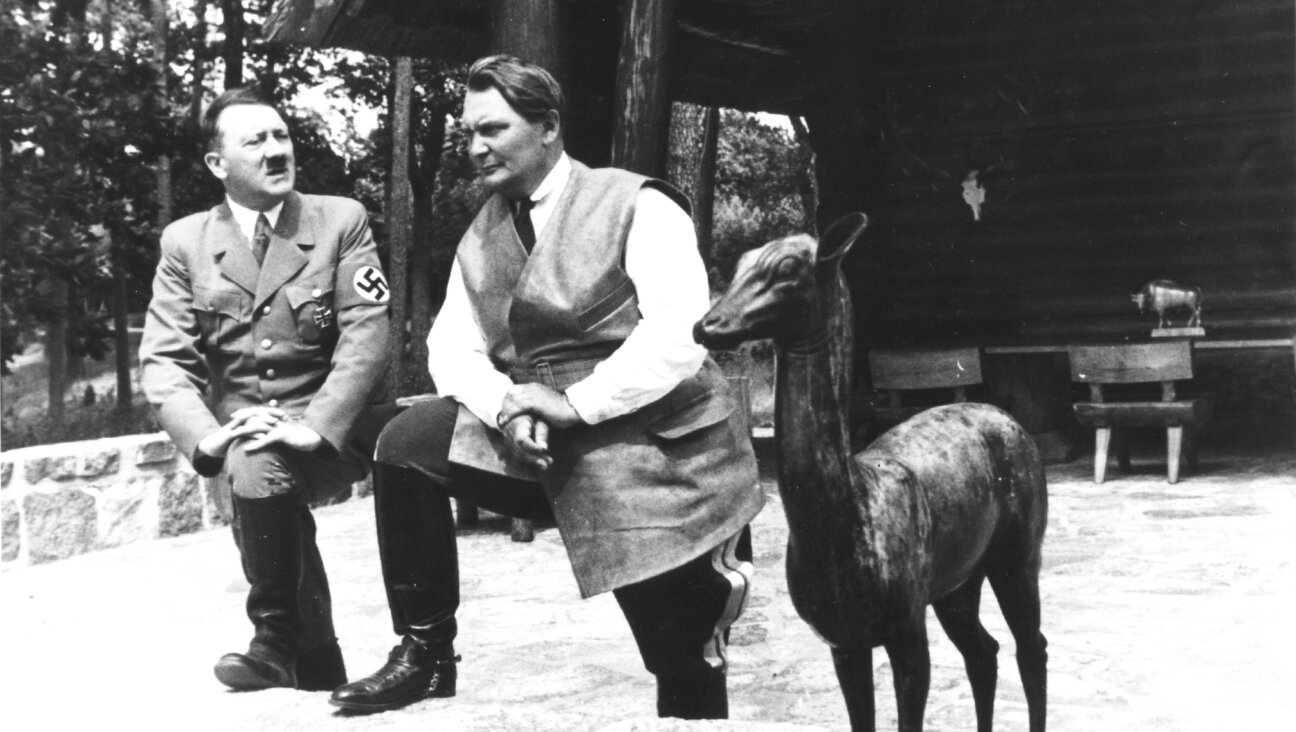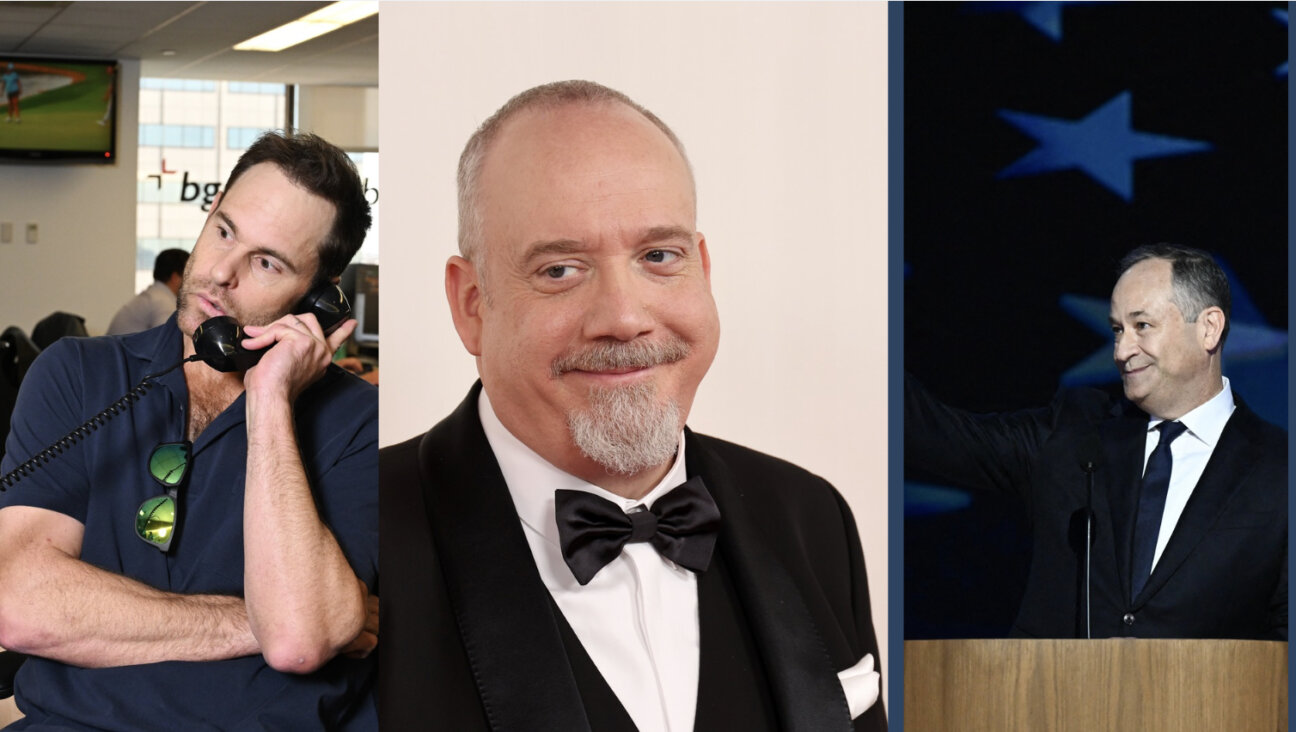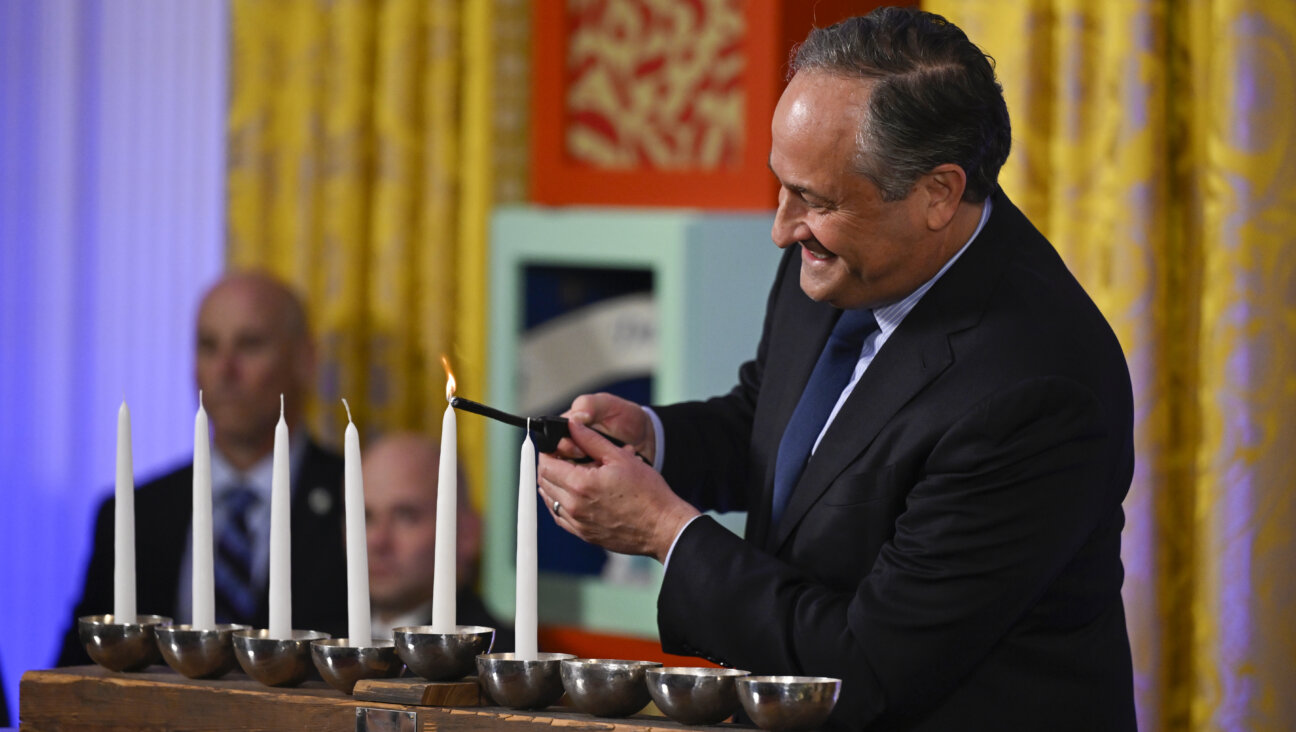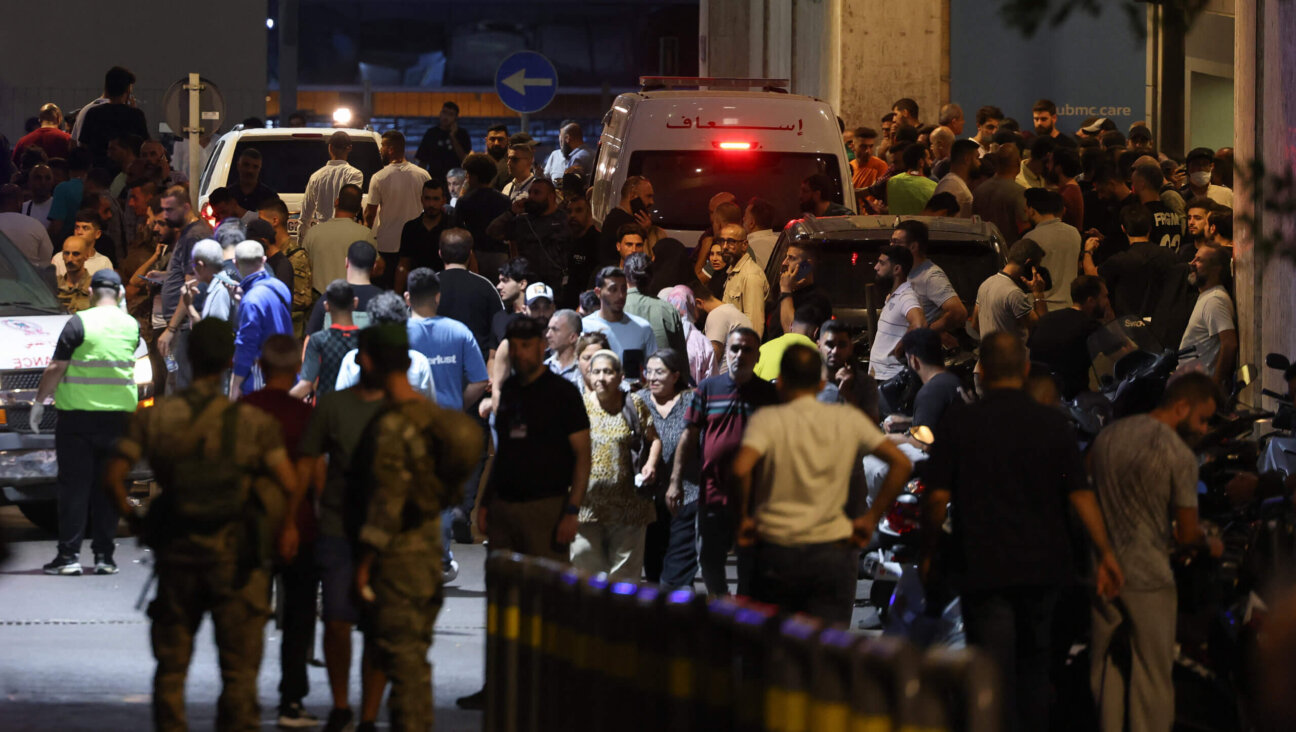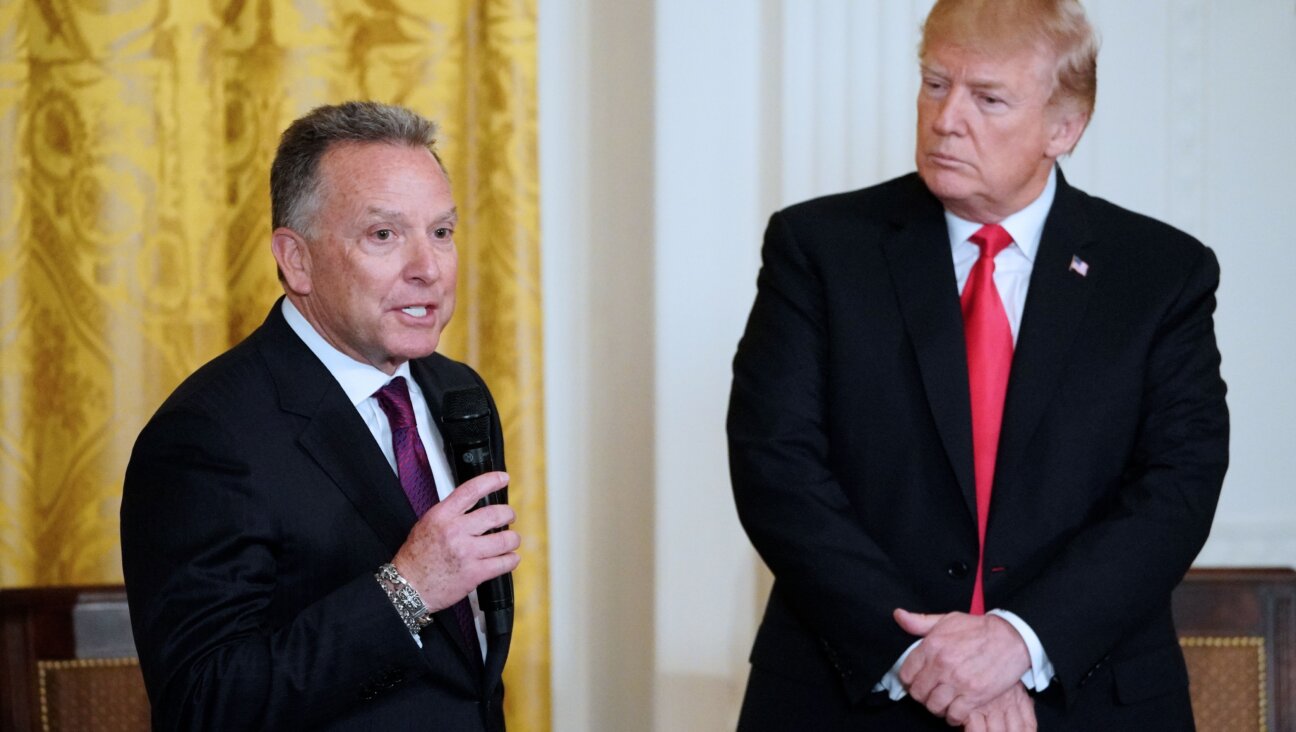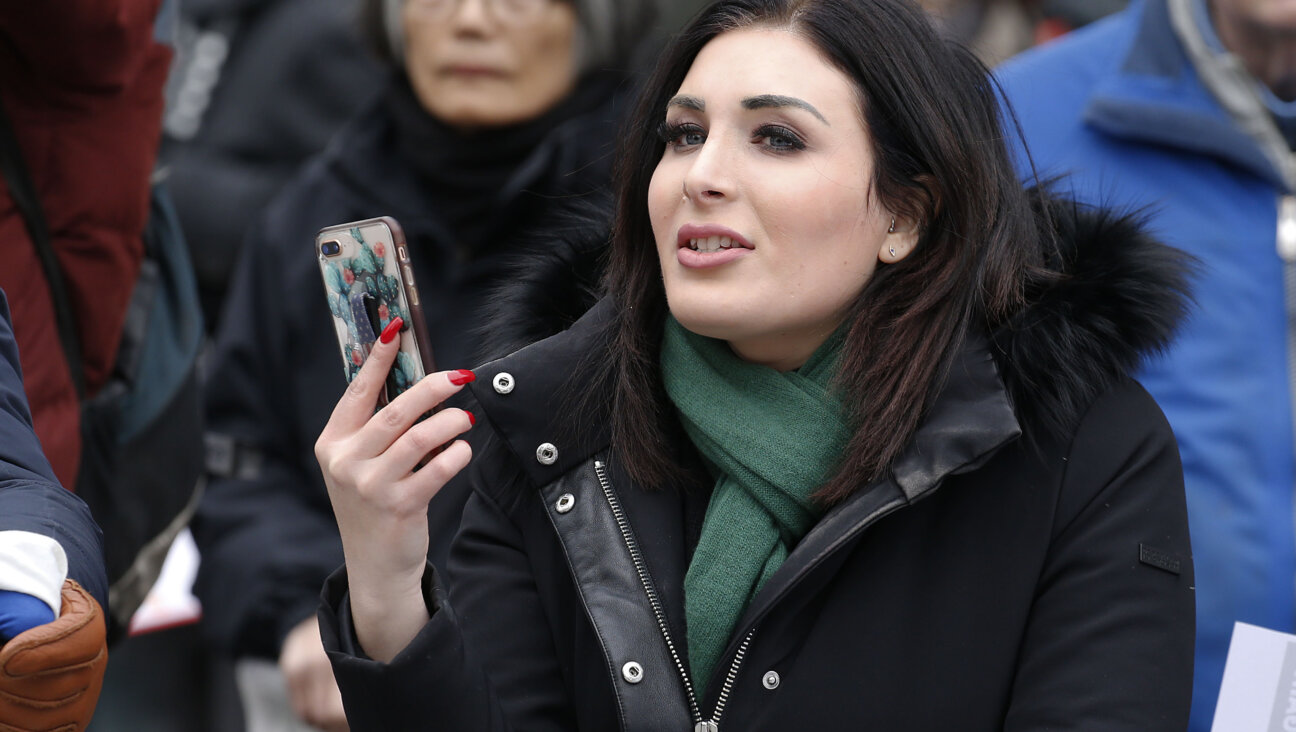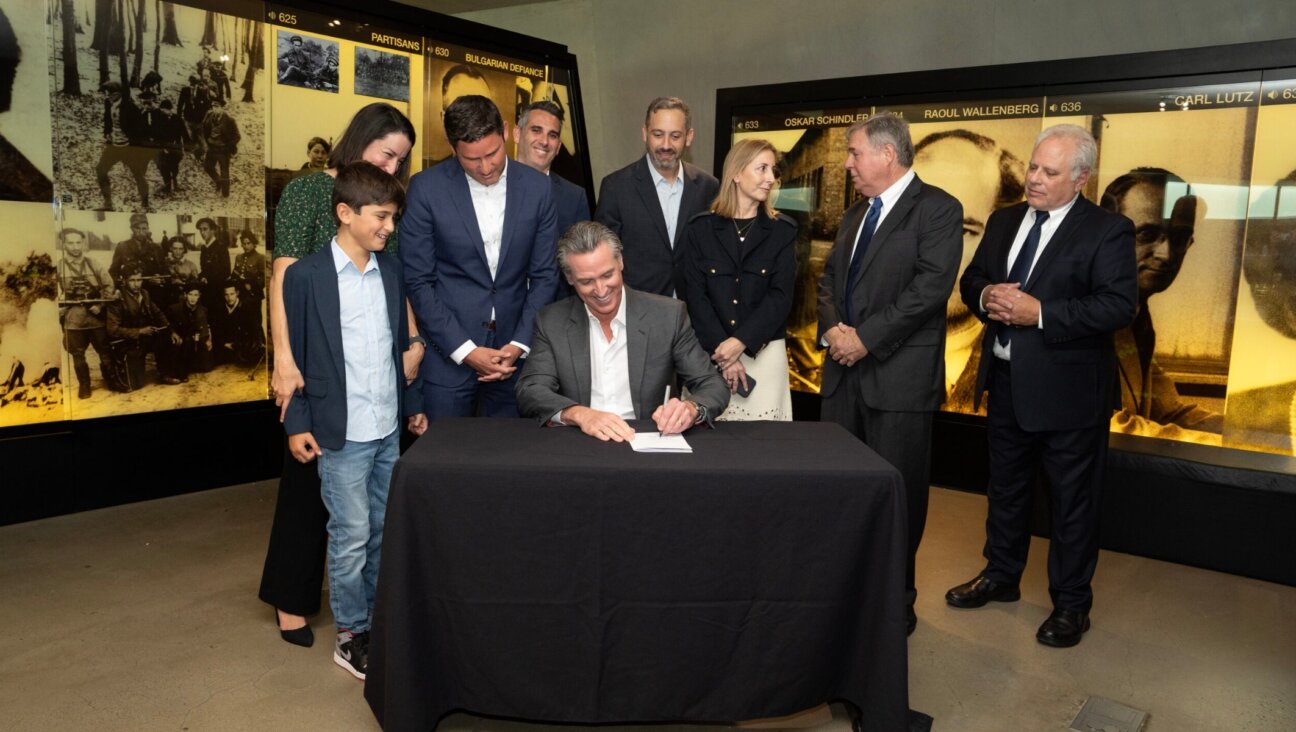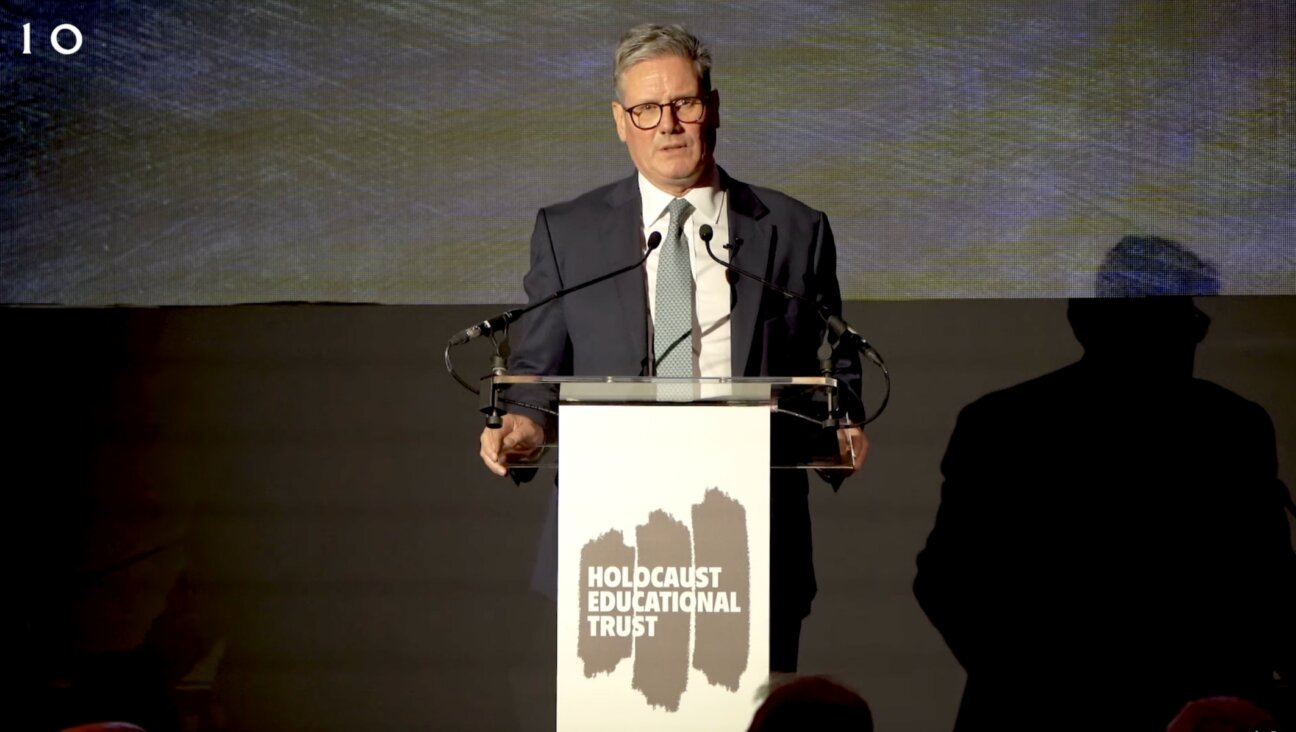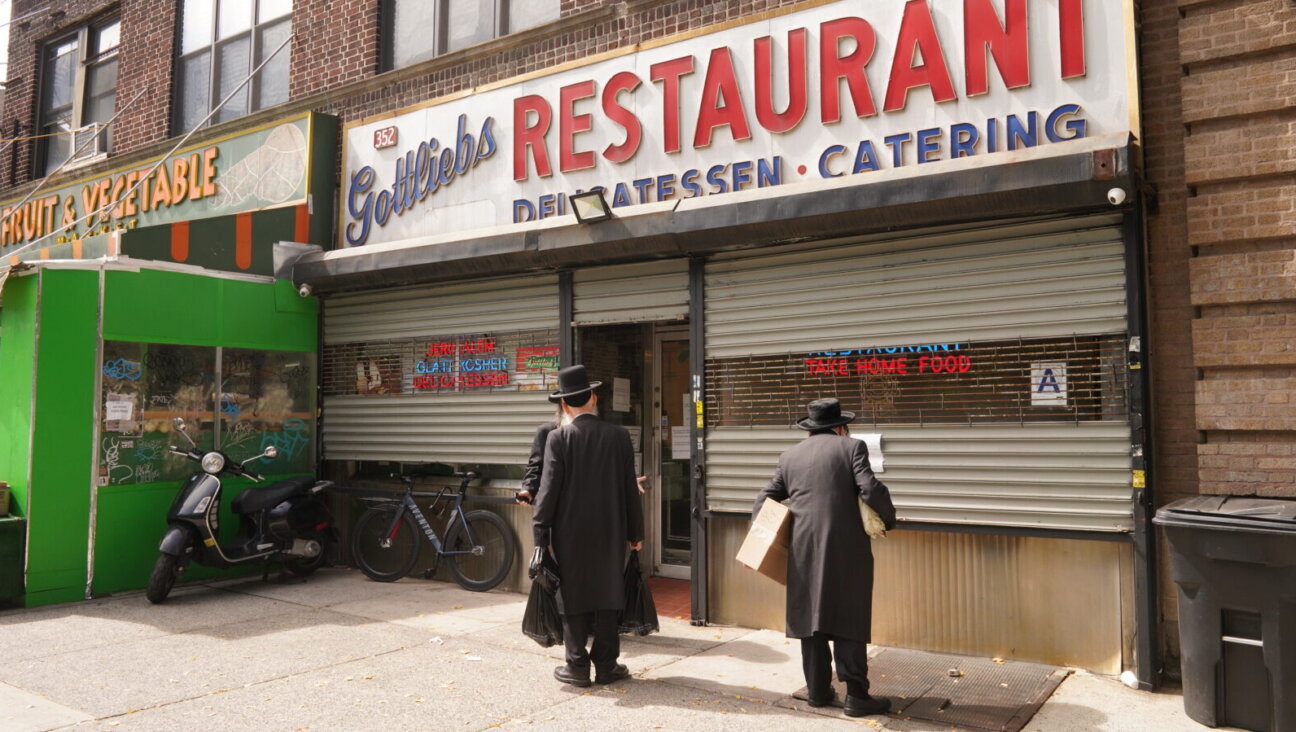At New Berlin Academy, Israelis and Arabs Find a Musical Path to Peace

Edward Said and Daniel Barenboim meet in Sevilla in 2002. Image by wikimedia commons
Daniel Barenboim and Edward Said — one an Israeli classical music superstar, one a prominent Palestinian American academic — made an unlikely pair. Yet the duo found a rich artistic and intellectual ferment in their differences born, Said told NPR’s Scott Simon in a 2002 interview, out of the fact they were “both passionate about music.”
Said passed away in 2003, but on December 8, that mutual passion reached its long-wished culmination with the opening of the Barenboim-Said Academy in Berlin, where Barenboim is the musical director of Berlin’s State Opera.
The Academy evolved from the West-Eastern Divan Orchestra, which Barenboim and Said founded in Weimar, Germany in 1999. The Orchestra serves as a uniting vehicle for Israeli and Arab musicians; its website explains the Orchestra’s founding “materialized a hope to replace ignorance with education, knowledge and understanding; to humanize the other; to imagine a better future.”

The Barenboim-Said Academy’s Pierre Boulez Concert Hall. Image by Adam Berry/Getty Images
In a press release, the Academy stated it currently hosts 37 students. It intends to increase that number to 90 by the 2018/2019 academic year.
“I’m sure you will believe me if I tell you that I once felt this day would never happen,” Barenboim told The New York Times’ Alison Smale at the Academy’s opening, where he conducted members of the West-Eastern Divan Orchestra in a brief concert featuring music of Mozart and Haydn. Barenboim currently serves as the Academy’s president.
In that long-ago NPR interview, Barenboim commented on the cultural ties between Israelis and Palestinians. “Even musically speaking, what is now the Israel Philharmonic Orchestra was then called the Palestine Philharmonic Orchestra,” he said. For Said, improving education about those ties — as well as the conflicts that have strained them — was one of the Orchestra’s most significant missions.
“Don’t forget that part of this horrible conflict stems out of total ignorance of the other, on both sides,” he said.
A message from our CEO & publisher Rachel Fishman Feddersen

I hope you appreciated this article. Before you move on, I wanted to ask you to support the Forward’s award-winning journalism during our High Holiday Monthly Donor Drive.
If you’ve turned to the Forward in the past 12 months to better understand the world around you, we hope you will support us with a gift now. Your support has a direct impact, giving us the resources we need to report from Israel and around the U.S., across college campuses, and wherever there is news of importance to American Jews.
Make a monthly or one-time gift and support Jewish journalism throughout 5785. The first six months of your monthly gift will be matched for twice the investment in independent Jewish journalism.
— Rachel Fishman Feddersen, Publisher and CEO








